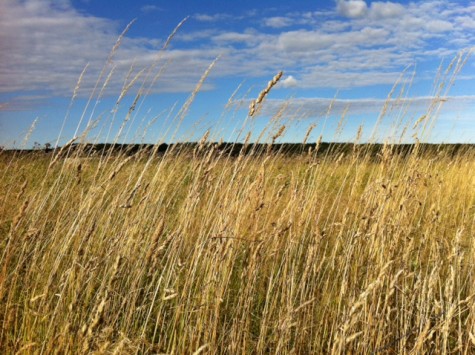
When my husband finished grad school in 2006, we spent a lot of time talking about where we should go next. We knew we wanted to leave the college town in Oregon where we’d lived for the last few years. Should we head to the Cascades, move north along the Willamette River, or go south and west, to the edge of the sea?
We ended up choosing the water. Here we are still, perched above the Santa Barbara Channel, with views of oil rigs, islands, and most of all, the sea.
Many factors went into the decision. There were our families to consider. There was the weather–we flew up through thick Portland clouds and descended to a sunlit California tarmac lined by swaying palm trees. And maybe even that we’d spent several weeks that summer binge-watching the OC had some sway. But research presented a few weeks ago at the Society For Personality And Social Psychology meeting in Long Beach suggests that our personalities might have had something to do with it as well.
In a series of studies, psychologists looked at connections between personality and two aspects of the landscape—whether it was flat or mountainous. In a survey of more than 900 people, they found that extroverts tended to prefer the ocean, while introverts gravitated toward mountains; in another study, they saw that residents of mountainous states tend to be more introverted than people who live in flat states.
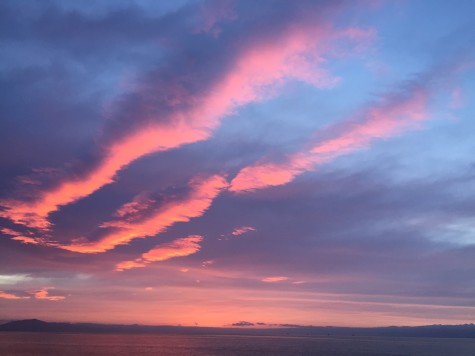 I love living by the ocean. I love the sound of the waves, the crunch-squish of the sand beneath, the colors of storm-tossed rocks. The smell of salt. Even the smell of decomposing kelp on the sand.
I love living by the ocean. I love the sound of the waves, the crunch-squish of the sand beneath, the colors of storm-tossed rocks. The smell of salt. Even the smell of decomposing kelp on the sand.
But here’s the thing—I’m an introvert. (And it was only several years after we’d been living together that I realized my gregarious, storytelling husband might be actually be an introvert, too.) The beaches here aren’t always crowded, particularly not at dawn, and even if they are, what I see when I look at the ocean is solitude. And possibility. If I only had a boat, I could keep going further into the emptiness. And if I only knew how to sail it, maybe I’d end up in Japan.
I love looking at landscapes, thinking about landscapes, wondering what makes some appealing and others, less so. So I did what I do when I wanted to keep thinking about something but don’t know what direction to take those rambling thoughts: I asked a group of science writers for help.
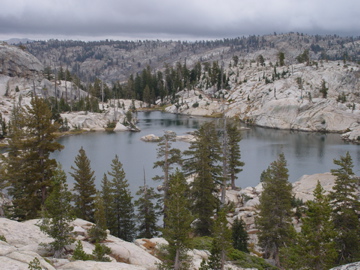 They’re a healthy mix of introverts and extroverts and people in between, who live in lots of interesting places. One is LWON’s own Michelle Nijhuis. She’s an introvert, but she’s hooked on open spaces, too. As she explains it, she first fell in love with the desert as a field tech in southern Utah; later, her feelings extended to other arid landscapes and “the people who hang on in them, even as the land tries to shake them off.” And she reports on another study about how these sorts of landscapes can often alienate people—perhaps because they don’t offer the comfort of shelter that may have been a fierce necessity in ages past.
They’re a healthy mix of introverts and extroverts and people in between, who live in lots of interesting places. One is LWON’s own Michelle Nijhuis. She’s an introvert, but she’s hooked on open spaces, too. As she explains it, she first fell in love with the desert as a field tech in southern Utah; later, her feelings extended to other arid landscapes and “the people who hang on in them, even as the land tries to shake them off.” And she reports on another study about how these sorts of landscapes can often alienate people—perhaps because they don’t offer the comfort of shelter that may have been a fierce necessity in ages past.
But for her—and for many of the open-space aficionados who responded to my recent query–these landscapes offer a different kind of comfort, whether it’s the calming feeling of insignificance, the time-lapse flicker of clouds in motion across wide skies, the lure of distant horizons, or something more practical. “As an introvert, maybe I just like to see people coming,” Michelle says.
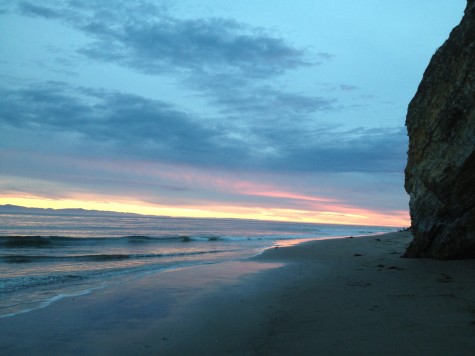 Emma Marris points out that oceans may have different qualities than other flat spaces, like prairies and deserts, because most of us experience them at the edge. “And that edge quality is part of what I adore in ocean beaches.” (An extrovert who’s currently based in the mountains, she’s making the most of her location by writing about the wolves with which she shares a mountain range.)
Emma Marris points out that oceans may have different qualities than other flat spaces, like prairies and deserts, because most of us experience them at the edge. “And that edge quality is part of what I adore in ocean beaches.” (An extrovert who’s currently based in the mountains, she’s making the most of her location by writing about the wolves with which she shares a mountain range.)
Several people talked about how the landscape we prefer as adults may be shaped less by our personalities and more by our native landscapes. I spent much of my early years in or near mountains or hills—although now I do wonder if my extremely introverted father chose to live far up in the hills, with more space between neighbors and the shelter of trees and topography. But he also liked the quiet beaches of Carmel, and I liked our hills for the view they allowed out to the bay, more hills, and the sea beyond.
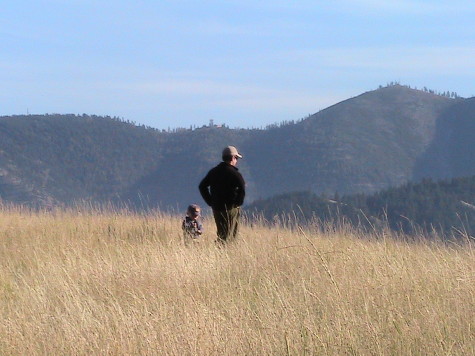 Writer Susan Gaidos grew up in the Corn Belt—no oceans, mountains, or even swaths of unplowed prairie. But what she did have was vast farm fields. Gaidos, who describes herself as an “ambivert” who enjoys socializing and also needs solitude, says she remembers “even at a young age feeling energized when I looked out over a field that extended to the horizon — and getting an urge to run as far as I could.”
Writer Susan Gaidos grew up in the Corn Belt—no oceans, mountains, or even swaths of unplowed prairie. But what she did have was vast farm fields. Gaidos, who describes herself as an “ambivert” who enjoys socializing and also needs solitude, says she remembers “even at a young age feeling energized when I looked out over a field that extended to the horizon — and getting an urge to run as far as I could.”
I’m fascinated by these stories about what landscape does to us and how it shapes us. I can’t imagine there will ever be a simple explanation for what we love about our world—when is there a simple explanation for anything we love, really? But seeing our personality as an extension of and intertwined with the landscape may be an important way to connect with the world around us, even though sometimes our daily lives seem so separate from the living space that may have called us to where we are. I sit here at my computer, imagining my friends standing on wide mesas, at the edge of the Pacific, about to step into thick, tangled trees. I think of who they are, and who they may be.
And there’s Susan, who saw the fields and wanted to run. Not to escape from anything or anyone, she recalls, “but rather a craving to reach beyond and expand.” That’s what our favorite landscapes can be if we let them—whether we come to mountain or ocean, craving connection or solitude—they are the places that allow us to push past the boundaries, into the new territory of ourselves.
**
Images of a few of my favorite places: fields in Denmark, the sky over Santa Barbara, a lake in the Cascades, Leadbetter Beach, and two people contemplating a run through a Montana field.
This is so interesting. My personality type is a bit of both and I actually live in a coastal city which is home to mountains. I’m fascinated by both types of landscapes. I’m going to think a bit more about this. Thanks for your own insight! <3